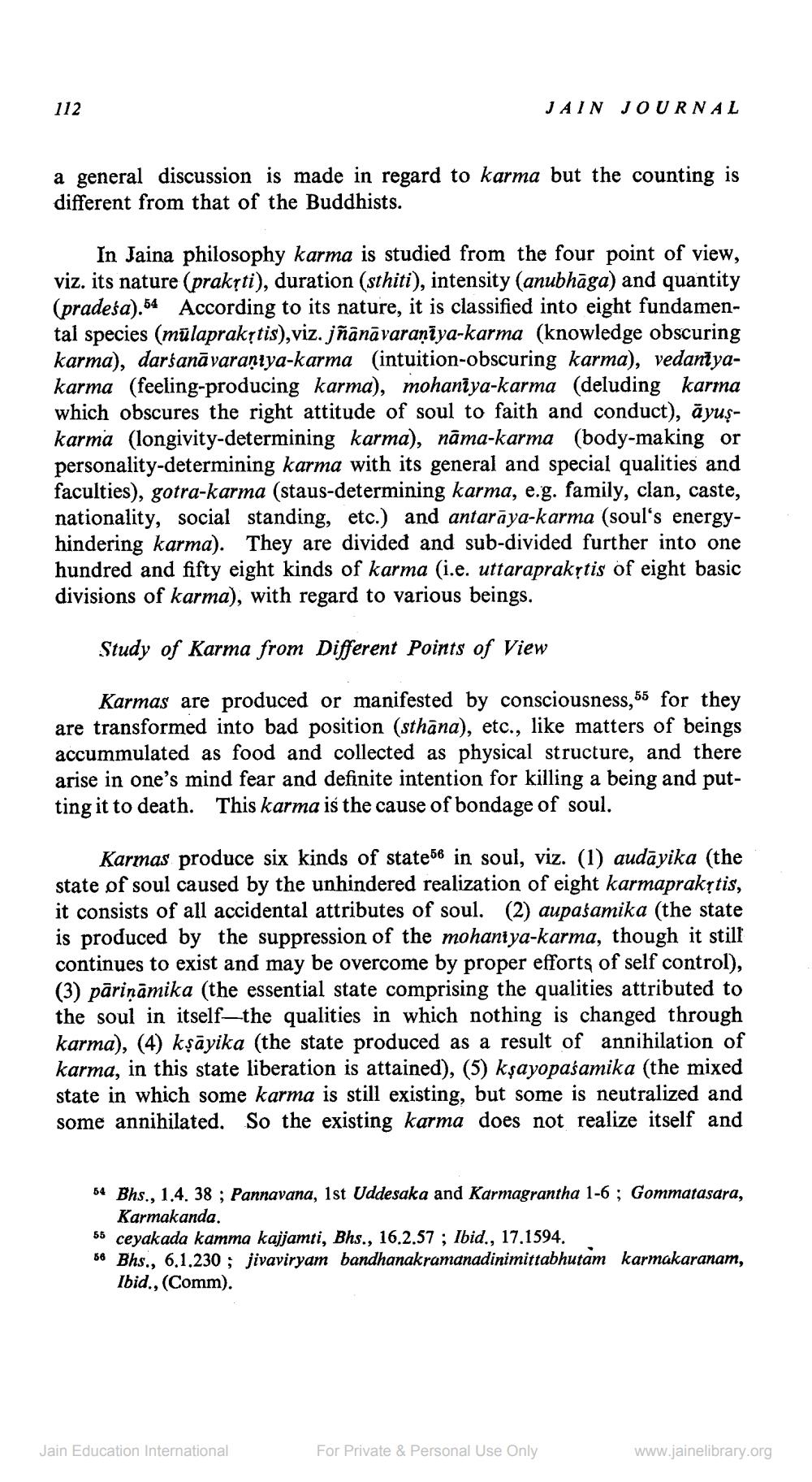________________
112
a general discussion is made in regard to karma but the counting is different from that of the Buddhists.
JAIN JOURNAL
In Jaina philosophy karma is studied from the four point of view, viz. its nature (prakṛti), duration (sthiti), intensity (anubhāga) and quantity (pradesa).54 According to its nature, it is classified into eight fundamental species (mulaprakṛtis),viz. jñānāvaraṇīya-karma (knowledge obscuring karma), darśanā varaṇtya-karma (intuition-obscuring karma), vedaniyakarma (feeling-producing karma), mohaniya-karma (deluding karma which obscures the right attitude of soul to faith and conduct), āyuşkarma (longivity-determining karma), nāma-karma (body-making or personality-determining karma with its general and special qualities and faculties), gotra-karma (staus-determining karma, e.g. family, clan, caste, nationality, social standing, etc.) and antarāya-karma (soul's energyhindering karma). They are divided and sub-divided further into one hundred and fifty eight kinds of karma (i.e. uttaraprakṛtis of eight basic divisions of karma), with regard to various beings.
Study of Karma from Different Points of View
Karmas are produced or manifested by consciousness,55 for they are transformed into bad position (sthāna), etc., like matters of beings accummulated as food and collected as physical structure, and there arise in one's mind fear and definite intention for killing a being and putting it to death. This karma is the cause of bondage of soul.
Karmas produce six kinds of state56 in soul, viz. (1) audāyika (the state of soul caused by the unhindered realization of eight karmaprakṛtis, it consists of all accidental attributes of soul. (2) aupaŝamika (the state is produced by the suppression of the mohantya-karma, though it still continues to exist and may be overcome by proper efforts of self control), (3) pārināmika (the essential state comprising the qualities attributed to the soul in itself the qualities in which nothing is changed through karma), (4) kṣāyika (the state produced as a result of annihilation of karma, in this state liberation is attained), (5) kṣayopaśamika (the mixed state in which some karma is still existing, but some is neutralized and some annihilated. So the existing karma does not realize itself and
54 Bhs., 1.4. 38; Pannavana, 1st Uddesaka and Karmagrantha 1-6; Gommatasara, Karmakanda.
55 ceyakada kamma kajjamti, Bhs., 16.2.57; Ibid., 17.1594.
56 Bhs., 6.1.230; jivaviryam bandhanakramanadinimittabhutam karmakaranam, Ibid., (Comm).
Jain Education International
For Private & Personal Use Only
www.jainelibrary.org




